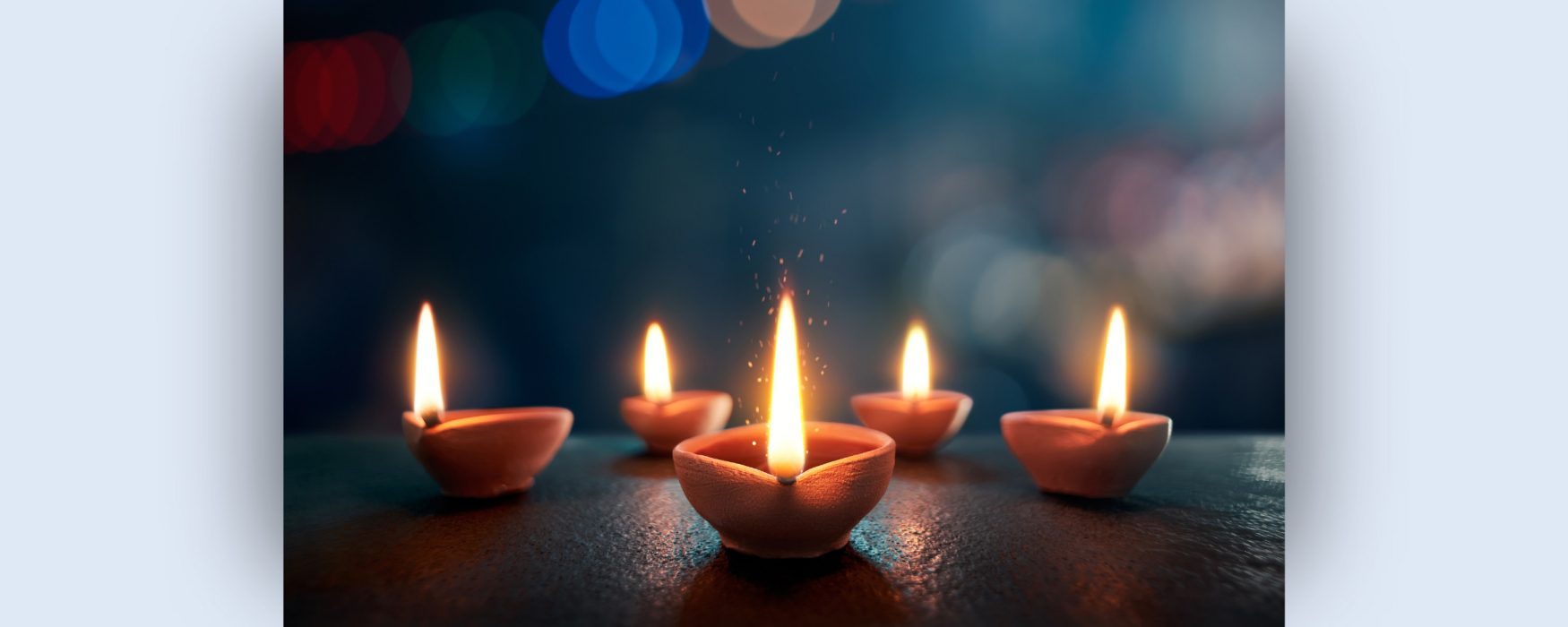
To foster an inclusive work environment, it is helpful to understand more about various religious celebrations and observations. Diwali celebrations begin on November 10th and last until November 14th. The festival is a five-day celebration, but the main day of Diwali is on the third day, this year November 12th.
Diwali is celebrated by millions of Sikhs, Hindus, Jains, and some Newar Buddhists around the world. It symbolizes the victory of good over evil and light over darkness.
The history of Diwali and why it is celebrated is different for various religions:
- Hindus commemorate the return of the deities Rama and Sita to Ayodhya after a 14-year exile, as well as the day Mother Goddess Durga defeated the demon Mahisha.
- Sikhs celebrate the release of the sixth guru Hargobind Singh from prison in 1619.
- Jainism was founded by Lord Mahavira. Jains observe Diwali to commemorate the moment he attained Moksha, also known as nirvana or eternal bliss.
- Newar Buddhists of Nepal celebrate Diwali to honour Lakshmi.
How to celebrate Diwali at work
Supporting coworkers who celebrate Diwali is important, and it can be a great opportunity for everyone to learn more about the holiday and join in the celebrations. Here are a few ideas for getting Diwali celebrations and how to get involved:
Learn about what the holiday means
Educate and train people about Diwali, religion, and why it is celebrated. Sharing Diwali facts and knowledge provides an opportunity for people to learn new things while also having fun and participating.
Share experiences
If your coworkers celebrate Diwali, invite them to share their experiences. This could be their way of celebrating Diwali, Diwali food they enjoy or what Diwali means to them. It will provide a personal perspective on the celebration.
Try symbolic foods
Those who celebrate Diwali may have signature dishes that they enjoy with family and friends.
It’s a good time to ask your colleagues if they’d be comfortable sharing/making their traditional dishes. If so, you can prepare foods for the team to share and discuss during the lunch break.
Review your holiday policy
As an important date in the calendar for millions of people globally, colleagues may take leave over the Diwali period to celebrate the Festival of Light.
Consider reviewing your holiday policy: could you offer flexible holidays for staff to take when they wish?